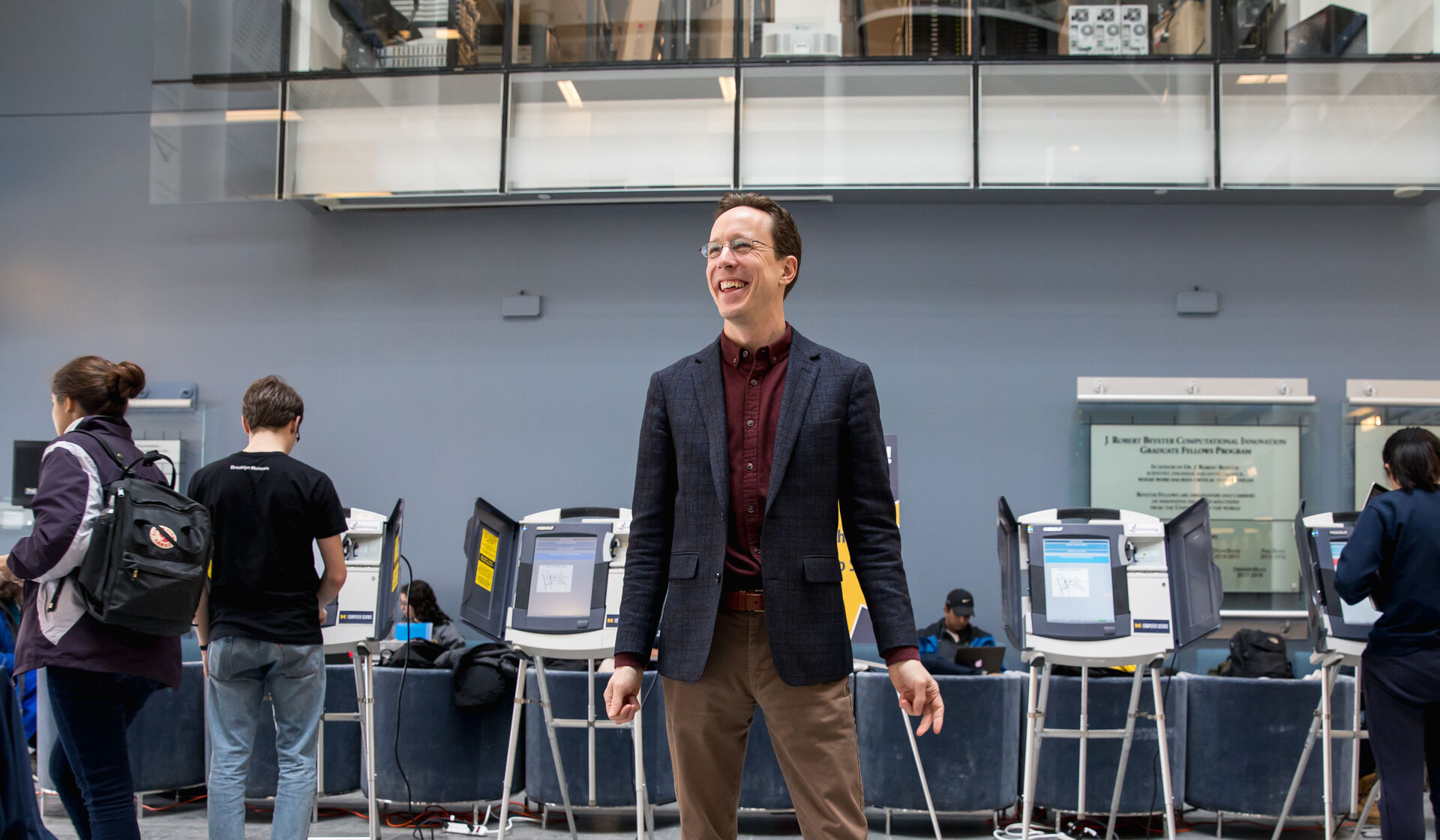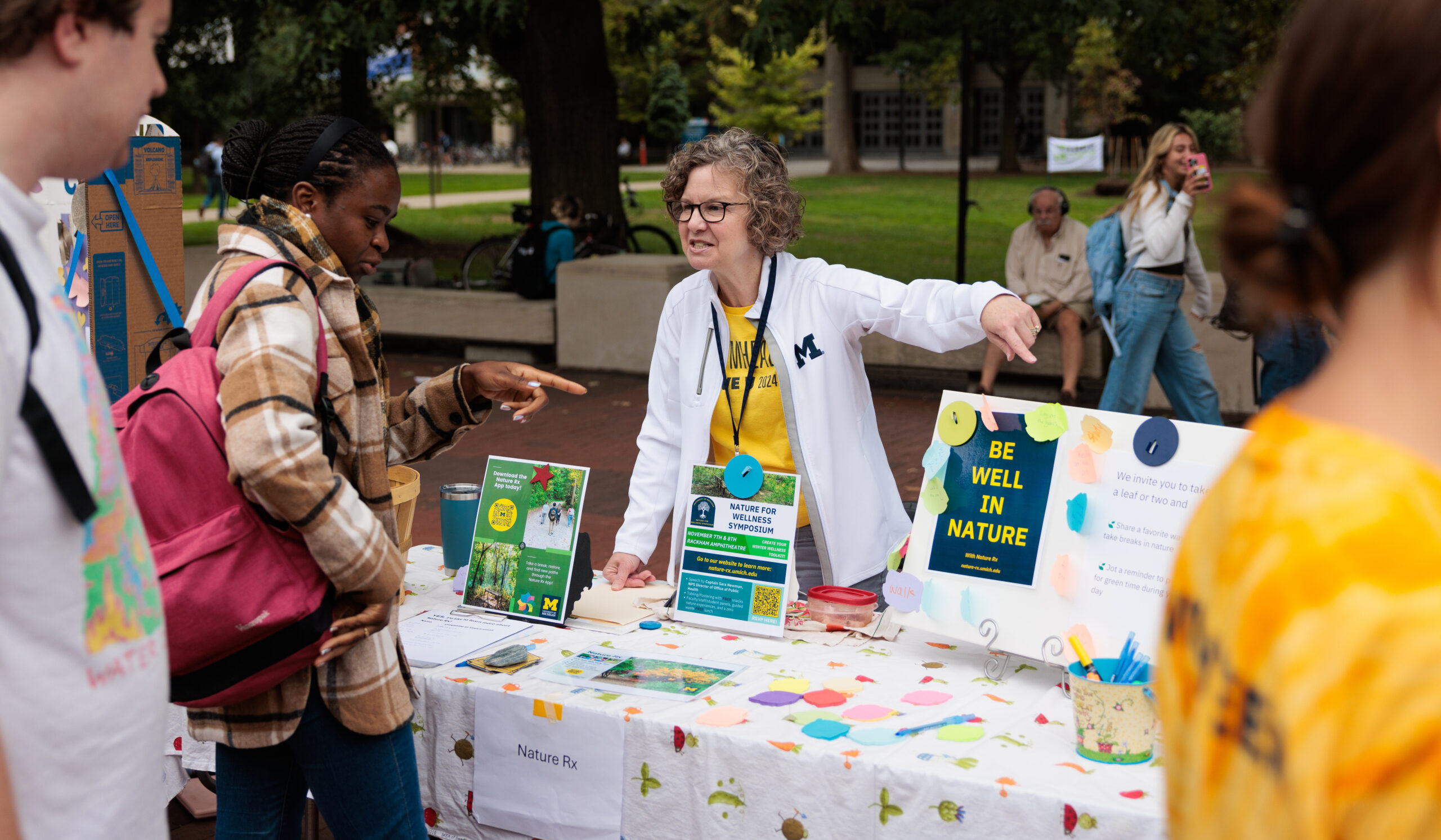Popcorn U
•
Header photo by Kevin Roberts, father photo
When Brian Taylor, ’00, arrived in Ann Arbor in 1996, he brought a popcorn maker he received as a high school graduation gift to his first-year dorm on the fourth floor of Mary Markley Hall. The soon-to-be philosophy major used it to experiment with different spice blends every chance he got. Aromas of freshly popped corn frequently piqued the interest of his peers there and later in an apartment on Forest Avenue.
“I remember experimenting with garlic and different cheeses early on, and even trying to recreate a barbecue potato chip-style seasoning, using just store-bought spices,” Taylor says. “It didn’t taste exactly like barbecue, and I realized there was only so much I could do with ingredients you could find in the grocery store, so I started working with flavor developers.”
Initial flavors included ranch, Cajun, barbecue, jalapeño, white cheddar, apple cinnamon, and chocolate marshmallow.
“I had to tell the flavor developers that we couldn’t get too exotic right away,” Taylor says. “We were already asking people to take a leap and season their popcorn, which was unprecedented.”
Around the same time, Taylor took a philosophy of work course with professor Frithjof Bergmann. He credits it with inspiring him to take his own leap and try to become an entrepreneur and turn his hobby into a career. Bergmann was known for encouraging students to pursue work they “really want to do,” and Taylor says he has always tried to achieve that.
As he continued to mix spices to test new seasoning flavors, Taylor interspersed business courses among his philosophy courses. Before settling for any other career, he would try to start his own popcorn seasoning business.
Enlisted
While watching a U-M football game in his apartment, Taylor and some friends packaged up Kernel Season’s for the first time.
“Each of my friends had a 15-pound bag and a box of popcorn seasoning, and they were scooping it into jars in our apartment,” Taylor recalls.
The name Kernel Season’s stuck and though he doesn’t exactly remember how the name came to be, Taylor created a legend in its place.
“The story is I was walking in the Diag where Colonel Seasons found me and told me that I was charged with the popcorn revolution,” he says.
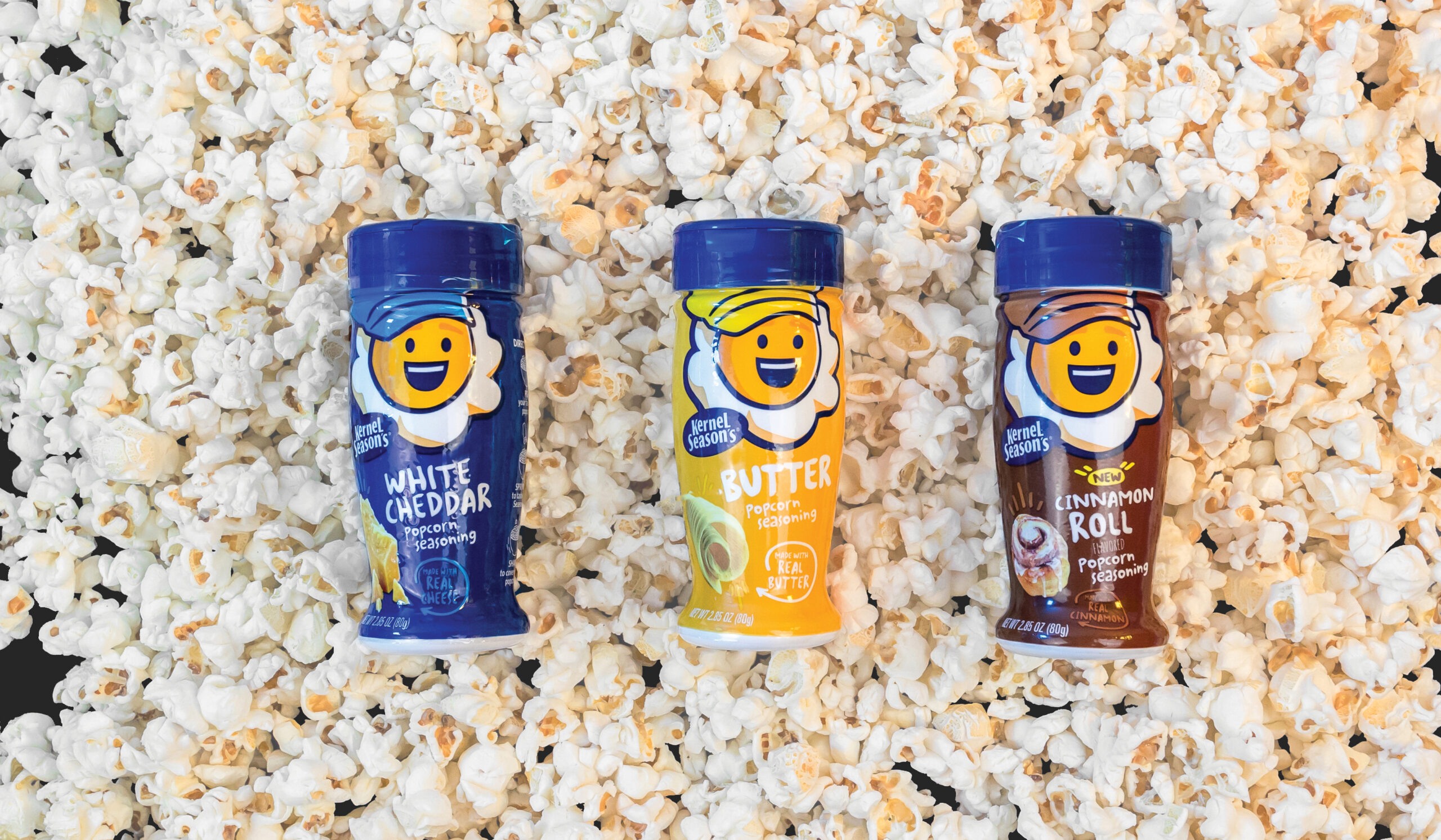
Marching orders in hand, Taylor moved back home near Chicago after graduation in May 2000 to launch the product. With the permission of movie theater managers, Taylor began displaying bottles of Kernel Season’s next to popcorn buttering stations as a free add-on option. Taylor watched as curious patrons poured flavors onto their popcorn more and more. Rather quickly, other theater managers who had heard from customers requesting the seasoning demanded Taylor bring the flavors to their megaplexes as well. Some started to pay him. Demand escalated to the point that Taylor bought a manufacturing facility in Illinois.
“About a year after getting traction with the theaters, we developed retail sizes designed for home use,” Taylor says. “I brought those to our local grocery store in Chicago, and they put them on the shelf. Then, they started selling. That’s a milestone I’ll never forget.”
Taylor recalls people’s puzzled looks when he told them what he did for a living.
“They would laugh at me and ask, ‘What do you really do?’” Taylor says.
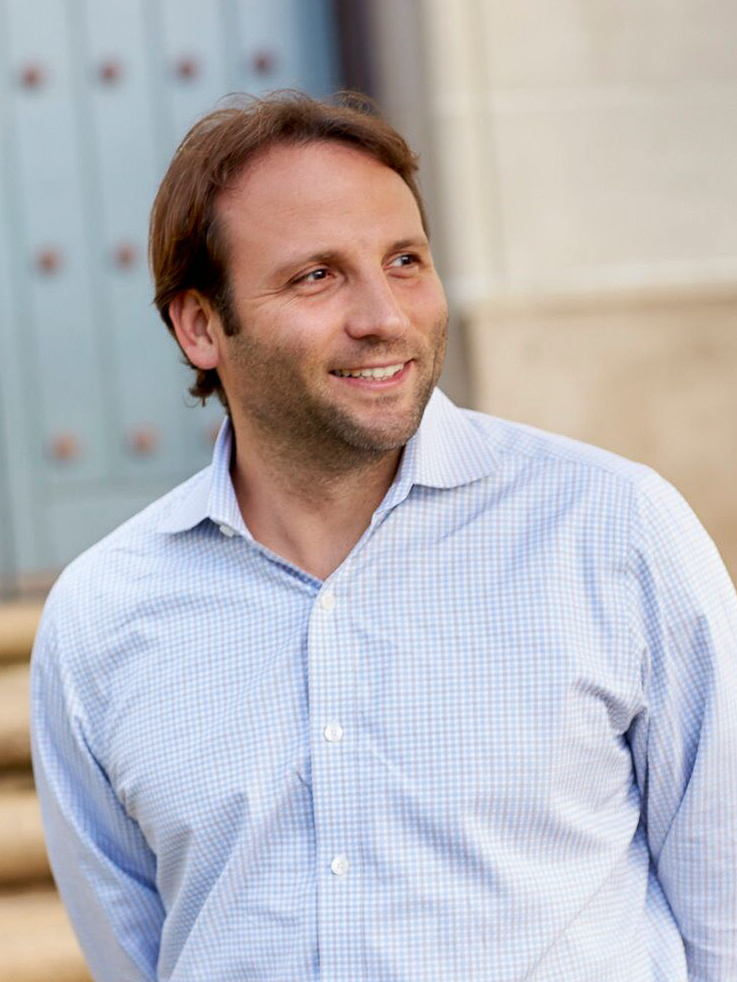
“My philosophy degree helped me to handle a battle of ideas, understand multiple perspectives, and communicate complex ideas — all of which are part of the many skills you exercise as an entrepreneur.”
--Brian Taylor, ’00
Nowadays, no one is laughing at Taylor. Kernel Season’s is America’s number-one selling brand of blended snack seasoning, a category it pioneered two decades ago. Available in more than 15,000 stores and 3,000 movie theaters across the U.S. and internationally in 35 countries, bottles of Kernel Season’s 20-plus flavoring varieties, which range from spicy (cheesy jalapeño) to sweet (milk chocolate caramel), shake up the popcorn experience.
Having conquered the snacking world, Taylor sold a portion of Kernel Season’s to a private equity firm, VMG Partners, in 2012. Seven years later, he formally exited the company when Highlander Partners then Sauer Brands purchased it for an undisclosed sum.
Taylor says the sale vindicated him and allowed him the bandwidth to embark on new ventures. His latest, Thinkspan, is an end-to-end encrypted personal database and private AI assistant he hopes will transform lives. He is also partnering with colleagues from Kernel Season’s on a food dehydration business called Earth Ranch.
“I love to create things that didn’t exist,” Taylor says. “A liberal arts education helps you see the world. My philosophy degree helped me to handle a battle of ideas, understand multiple perspectives, and communicate complex ideas — all of which are part of the many skills you exercise as an entrepreneur.”
Taylor’s creations innovated the popcorn industry. But he isn’t the only entrepreneurial-minded U-M alum popping with ideas.
Pop Pivots
Mark Sarafa, ’89, became familiar with retail snack shelves early in life, stocking them in his father’s liquor store in Detroit until he was 21. After receiving his finance degree from UM-Dearborn, he worked for four years at Coca-Cola, nine years at Frito-Lay, and 12 years with Absopure Water. Along the way, popcorn became a staple in the Sarafa home.
“We were probably popping four or five bags for my family of four just about every night,” Sarafa says. “Then I started reading articles about how bad microwave popcorn was for you, and we essentially banned it from the house. We bought a bigger popper, started using healthier oils, and bought local red kernel corn [from Bur Oaks Farm in Ann Arbor] that we still use today.”
Sarafa was unemployed and enjoying homemade popcorn in 2013 when he started contemplating whether his creative concoctions could be worthy of a space on store shelves. So the Sarafas started taking their popcorn to farmers’ markets under the name “Pop Daddy.”
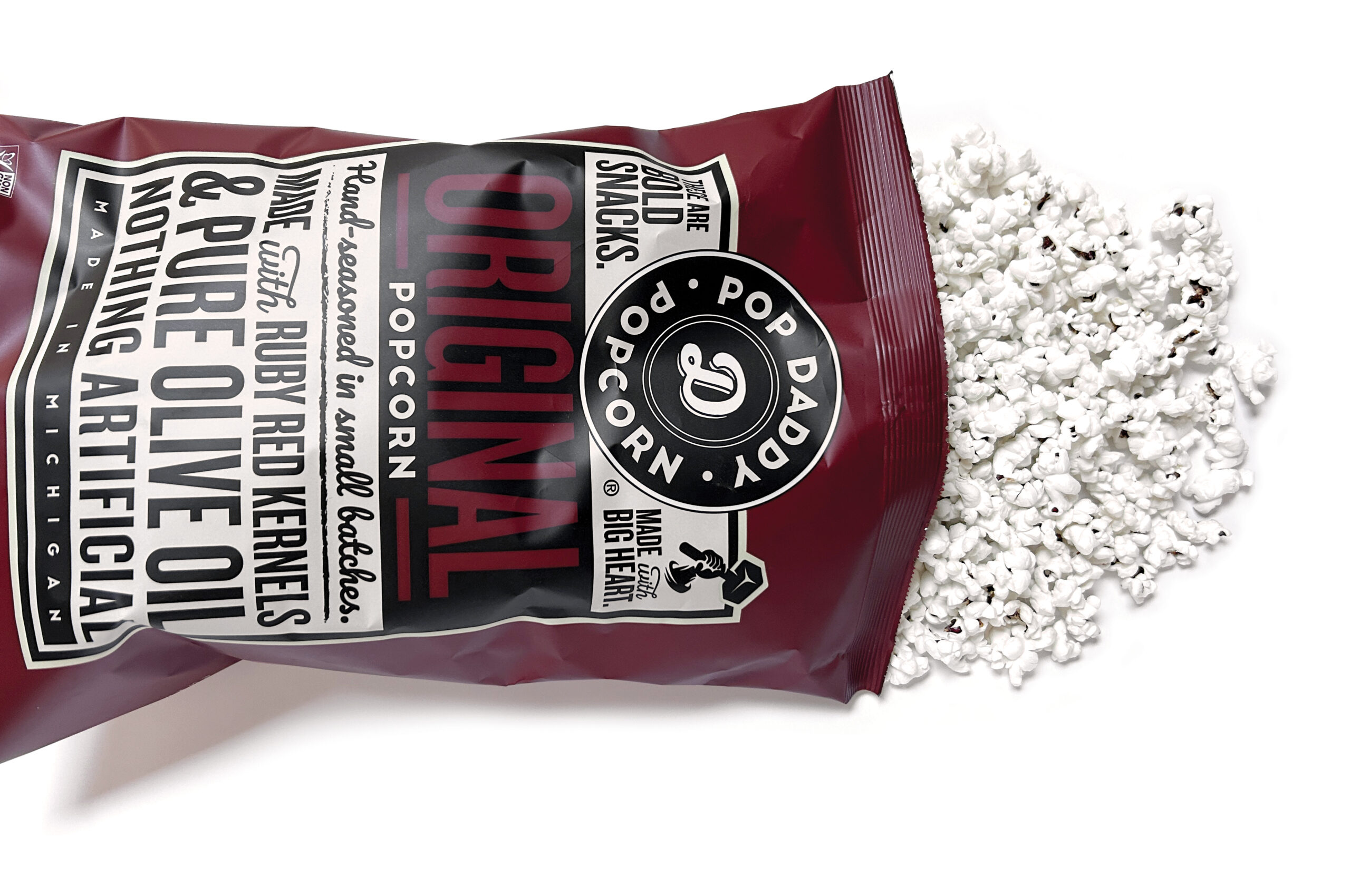
“My wife said, ‘While you’re still looking for a job, why don’t you go to some retailers?’” Sarafa recalls. “‘You’ve been in the industry forever. See if they’ll carry your popcorn. Everyone loves it.’ And so, I did.”
Several Michigan grocers started carrying Pop Daddy, and the company now has eight popcorn flavors, 13 pretzel varieties, and five types of kettle-cooked potato chips lining the shelves of thousands of retailers in the U.S. and five other countries.
Sarafa can smell the corn popping from his office at Pop Daddy headquarters in Howell, Michigan. Though Pop Daddy now has more than 100 employees, he is still involved in sales and almost every facet of operations.
“I spend 22 or 23 weeks a year on the road attending food shows to see what’s trending in food, not just snacks but everything,” Sarafa says. “That inspired us to create our international flavor line, which includes Thai honey curry and Mexican street corn.”
As the brand name alludes, Pop Daddy Snacks is a family-run business. Sarafa’s wife Erin is his business partner, and their son runs their TikTok, which has been a boon for sales. The account has more than 110,000 followers and 2 million likes.
“I spend 22 or 23 weeks a year on the road attending food shows to see what’s trending in food, not just snacks but everything. That inspired us to create our international flavor line.”
--Mark Sarafa, ’89
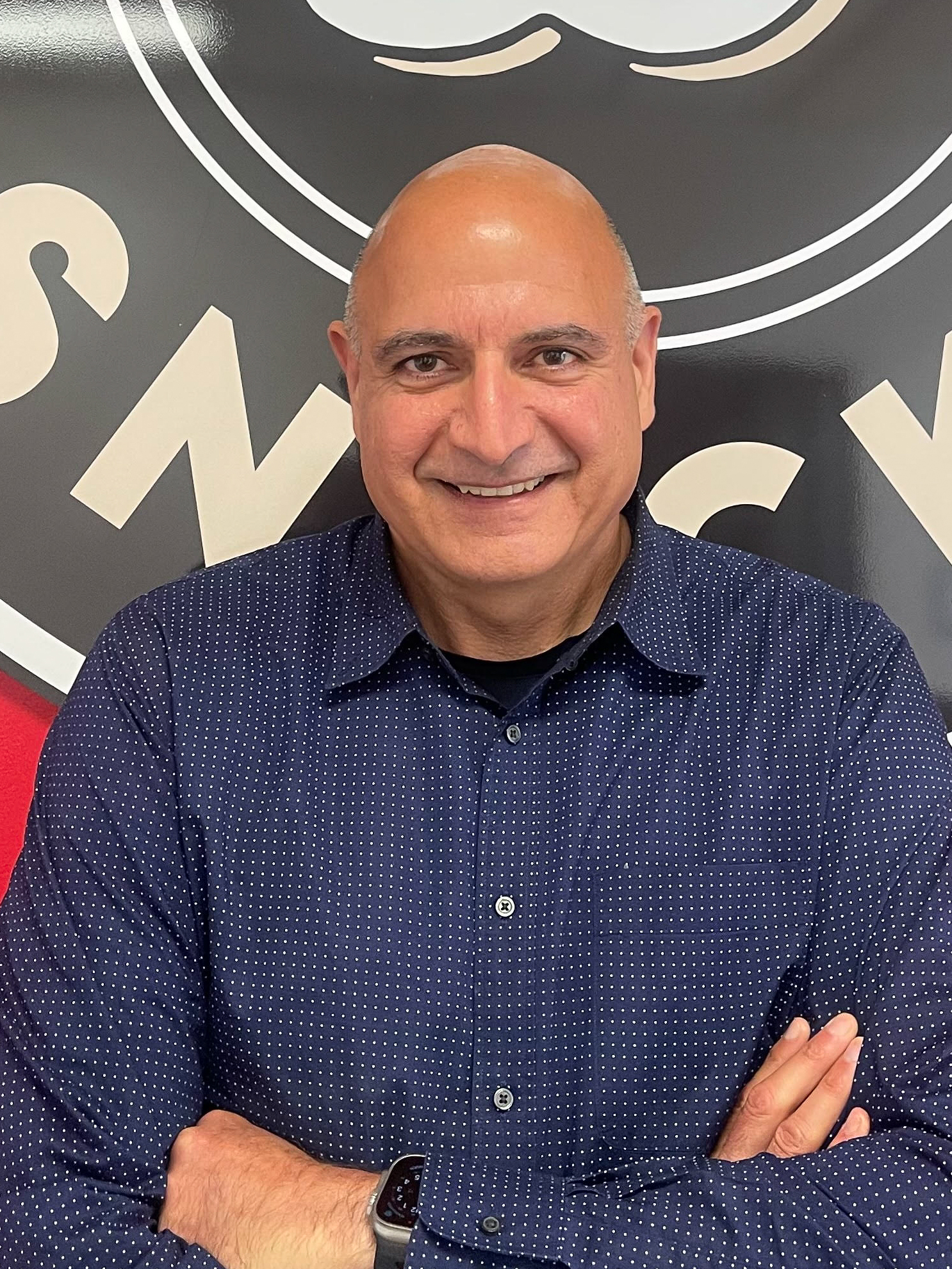
Sarafa says business success depends on innovating, whether marketing to audiences through emerging social media platforms like TikTok or pivoting to a new product type like seasoned pretzels.
“During my time at Frito-Lay, I saw how innovation drives sales,” Sarafa says. “Because of that and the emerging popularity of pretzels, we’re primarily a pretzel company now. We’re about 85 percent pretzels and about 15 percent popcorn today, but our popcorn business is doing very well and still growing.”
Fitting In
After stints in investment banking and the gas station and travel center industry, Andy Friedman, ’91, co-founded a gourmet popcorn business called Wells Street Popcorn in 2007. Right away, the young father feared he had taken too much risk.
“When you become an entrepreneur, you begin to realize that you took for granted all those amazing things that come with having a job as opposed to starting your own business,” Friedman says. “When you start your own business, nothing’s promised.”
Friedman framed Wells Street as an alternative to Chicago’s famous Garrett Popcorn and hoped it would take root in cities across the U.S. After a few years, Friedman noticed Americans were becoming increasingly interested in healthy snacking. He decided to experiment with a “better-for-you” popcorn.
“We were behind because we were launching a decadent product into a world that was starting to care about what they were putting in their bodies, and a healthy lifestyle was starting to become the new reality,” Friedman says. “We wanted to come up with a cleaner, better-for-you light version in our Wells Street store, so we started experimenting with different kernels, seasonings, and oils, and eventually came up with what became Skinny Pop.”
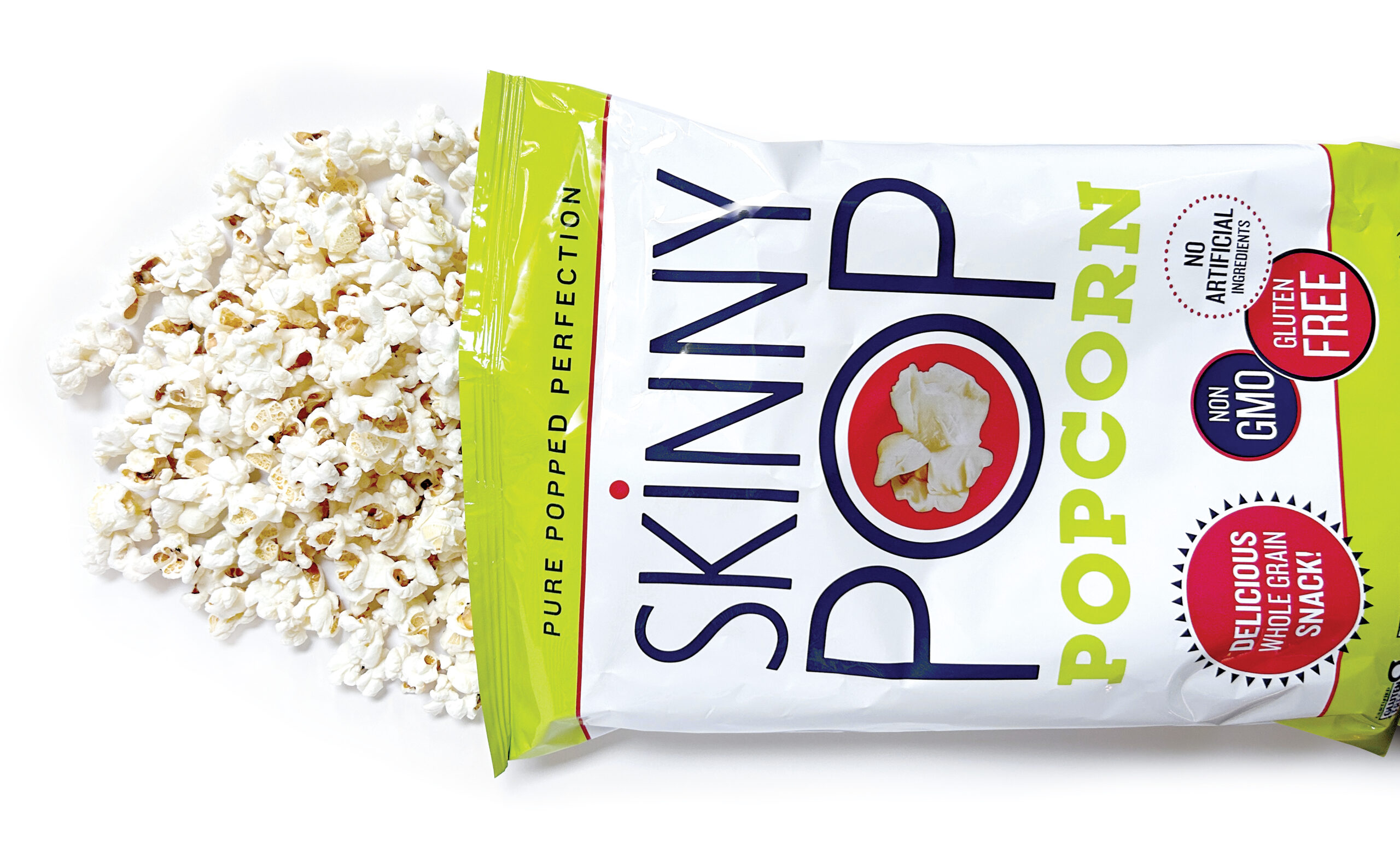
Friedman sold the first Skinny Pop bag in August 2010, and sales skyrocketed after that, reaching nearly $550 million in 2022.
Friedman says he sensed the idea had potential because there were so few better-for-you options in the ready-to-eat popcorn category, but doubts still came easy.
“For three years, Skinny Pop paid for nothing more than my cell phone bill,” Friedman says. “My kids were very young at the time, and my wife worked, which was hugely helpful, but it was a lot of stress, sleepless nights, and pressure to provide for my family.”
In July 2014, Friedman sold Skinny Pop to T.A. Associates, a private equity firm, and the parent company was renamed Amplify Snacks Brands Inc. A year later, Amplify went public on the New York Stock Exchange.
“That was never even a goal of mine,” Friedman says. “It was far beyond what I hoped to achieve as an entrepreneur. To ring the bell at the New York Stock Exchange was an overwhelming and exciting feeling.”
The Last Kernel
Many entrepreneurs have emerged from U-M — alumni are no strangers to innovation — but three successful entrepreneurs in the popcorn industry may be nothing more than a coincidence.
“I’m not sure why U-M students have made popcorn pop,” Taylor says. “Might be a coincidence or something about the Midwest sensibilities of the students.”
The three Wolverine popcorn entrepreneurs are cautious but encouraging to those looking to try something new, start a business, or innovate an industry as they have.
Sarafa says entrepreneurship is often a challenging journey that can encompass your entire life.
“Things have gotten better the last three years, but the first eight were just brutal. As I look back on those, I don’t think I would do it again,” Sarafa says. “I love what I do, and I’m so proud of everybody here, but I always feel like we’ve had so many downs after our highs that I don’t get that excited about anything anymore because we always know what might be on the other side.
“Although that’s happened less and less as we’ve grown and become a bigger and better company,” Sarafa adds, “It’s still an everyday grind, and I don’t ever think we’ve ‘made it.’”
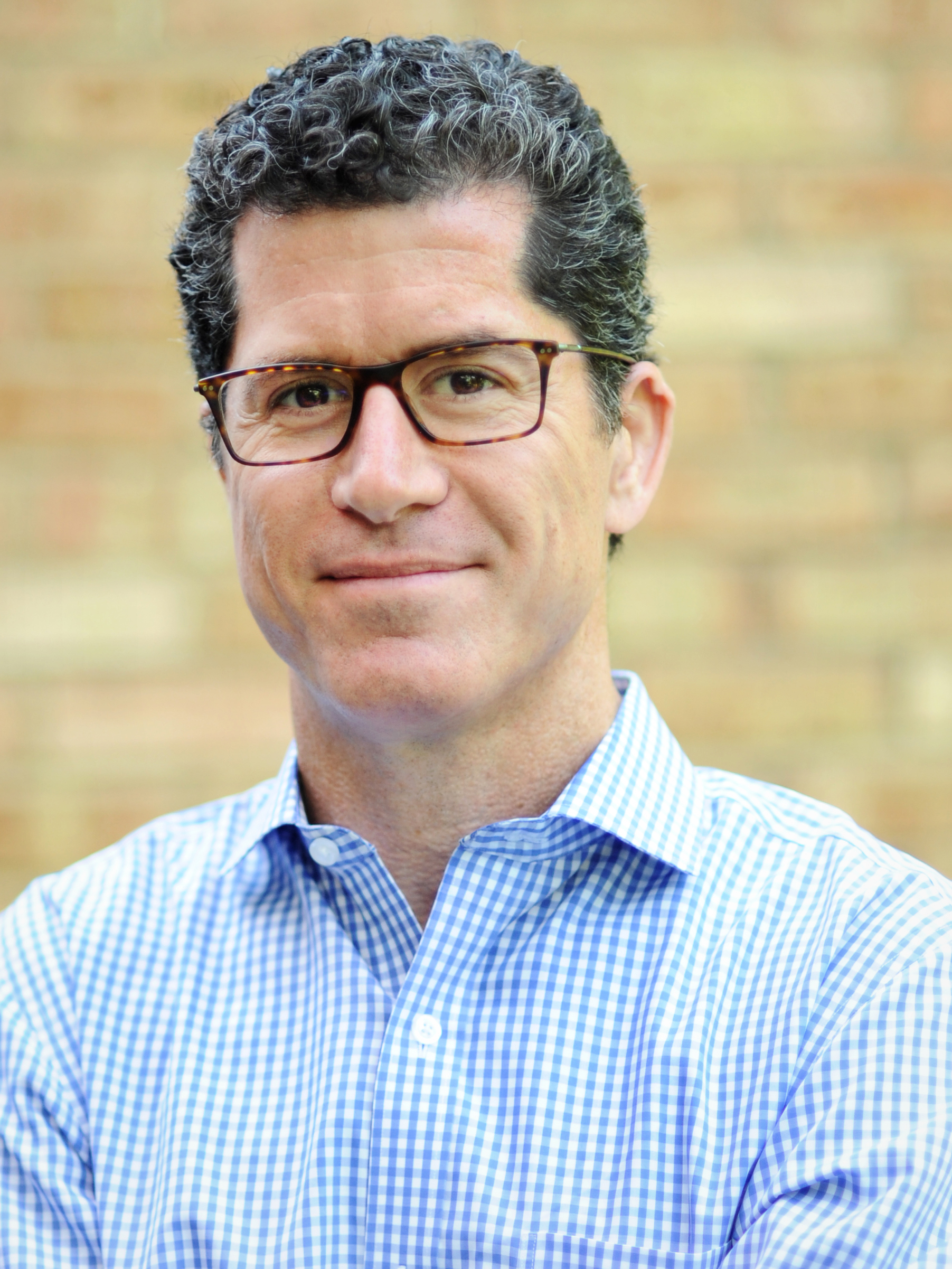
“You can’t listen to the naysayers ... Although it seems difficult and the odds are stacked against you, you can make it happen if it’s the right idea, product, and timing.”
--Andy Friedman, ’91
Today, Friedman advises budding entrepreneurs and lectures at the University of Chicago Booth School of Business, telling students they must be passionate about their product, patient with its sales, and willing to dedicate all their time to it.
“You can’t listen to the naysayers,” Friedman says. “From the beginning, people told us we didn’t have a chance because Frito-Lay and other big companies control the market, and it’s going to be impossible to get on the shelf, have a breakout brand, and connect with consumers. But none of that bore out.
“Although it seems difficult and the odds are stacked against you, you can make it happen if it’s the right idea, product, and timing.”
Steve Zoski, ’13, is a freelance writer based in Dearborn, Michigan.


